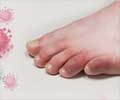Discover the recent spike of unique symptoms of the COVID-19 JN.1 variant, including anxiety and sleep issues.
- The new COVID JN.1 variant, evolved from Omicron, has seen a global upsurge recently
- Apart from common symptoms of cough, runny nose, and headache, patients infected with the JN.1 variant predominantly report anxiety and sleeping disorders
- This might be the result of increased levels of inflammatory markers due to JN.1-induced metabolic changes
Winter Coronavirus (COVID-19) Infection Study: estimates of epidemiological characteristics, 21 December 2023
Go to source).
All About COVID JN.1 Variant
JN.1, a descendant of the Omicron variant, was first detected in September in the US and has spread to over 40 countries. The WHO has categorized it as a variation of interest (VOI). In India, there were 573 fresh cases and two deaths in the last 24 hours, with a total of 197 cases of JN.1 recorded in 11 states.The majority of JN.1 cases have mild symptoms, and severity is observed in less than 10% of cases, particularly in individuals with pre-existing health conditions. The overall mortality rate is less than 2%, and deaths are infrequent, with most patients recovering at home.
The JN.1 variant, derived from BA.2.86 (also known as Pirola), carries an extra L455S mutation in the spike protein, increasing its transmissibility.
The "spike" protein, so named because it resembles microscopic spikes on the virus's surface, is essential to the virus's ability to infect people. The Centers for Disease Control and Prevention (CDC) states that COVID-19 vaccines that target the virus's spike protein should also be effective against BA.2.86 and JN.1.
Evolving Symptoms of COVID JN.1 Variant
JN.1 was previously primarily associated with upper respiratory tract infections, which included fever, coughing, sore throats, body aches, and runny noses.However, anxiety and sleeping disorders are two new symptoms that have been identified by the Office for National Statistics (ONS) in the UK. Since early November, more than 10% of people in the UK with COVID-19 have regularly reported feeling anxious or overly concerned, according to the ONS winter COVID report.
The most prevalent COVID-19 symptoms, based on the data, include runny nose (31.1%), cough (22.9%), headache (20.1%), fatigue (19.6%), muscle pain (15.8%), sore throat (13.2%), trouble sleeping (10.8%), and anxiety (10.5%).
Notably, the once-common symptoms of loss of taste and smell are currently recorded in only 2 to 3% of UK cases.
COVID JN.1- Anxiety- Sleeping Related Disorders
Previous studies on post-COVID symptoms found a link between COVID-19, anxiety, and sleeping difficulties (2✔ ✔Trusted SourceOmicron new variant BA.2.86 (Pirola): Epidemiological, biological, and clinical characteristics - a global data-based analysis
Go to source).
Elevated levels of inflammatory parameters such as ferritin and lymphocytes were positively correlated with HADS (Hospital Anxiety Depression Scale) and poor sleep quality scores. This explains post-infection anxiety and sleep disturbances in COVID-19 patients.
Additionally, women and previous symptoms of anxiety and depression are risk factors, and inpatient treatment increases depression and poor sleep quality.
Researchers speculate that these metabolic alterations may also be the cause of the correlation between anxiety and sleep problems and the JN.1 mutation. The researchers urge additional studies to determine the potential causes of the noticeable symptoms of anxiety and insomnia in COVID JN.1 variation.
In summary, anxiety and sleeping difficulties are prominently observed in patients affected by the new COVID JN.1 variant. Meanwhile, health experts have advised people to continue wearing masks, frequently wash hands, avoid public gatherings, and stay vaccinated to prevent infection.
References:
- Winter Coronavirus (COVID-19) Infection Study: estimates of epidemiological characteristics, 21 December 2023 - (https://www.gov.uk/government/statistics/winter-coronavirus-covid-19-infection-study-estimates-of-epidemiological-characteristics-england-and-scotland-2023-to-2024/winter-coronavirus-covid-19-infection-study-estimates-of-epidemiological-characteristics-21-december-2023)
- Omicron new variant BA.2.86 (Pirola): Epidemiological, biological, and clinical characteristics - a global data-based analysis - (https://pubmed.ncbi.nlm.nih.gov/37843359/)
Source-Medindia
















